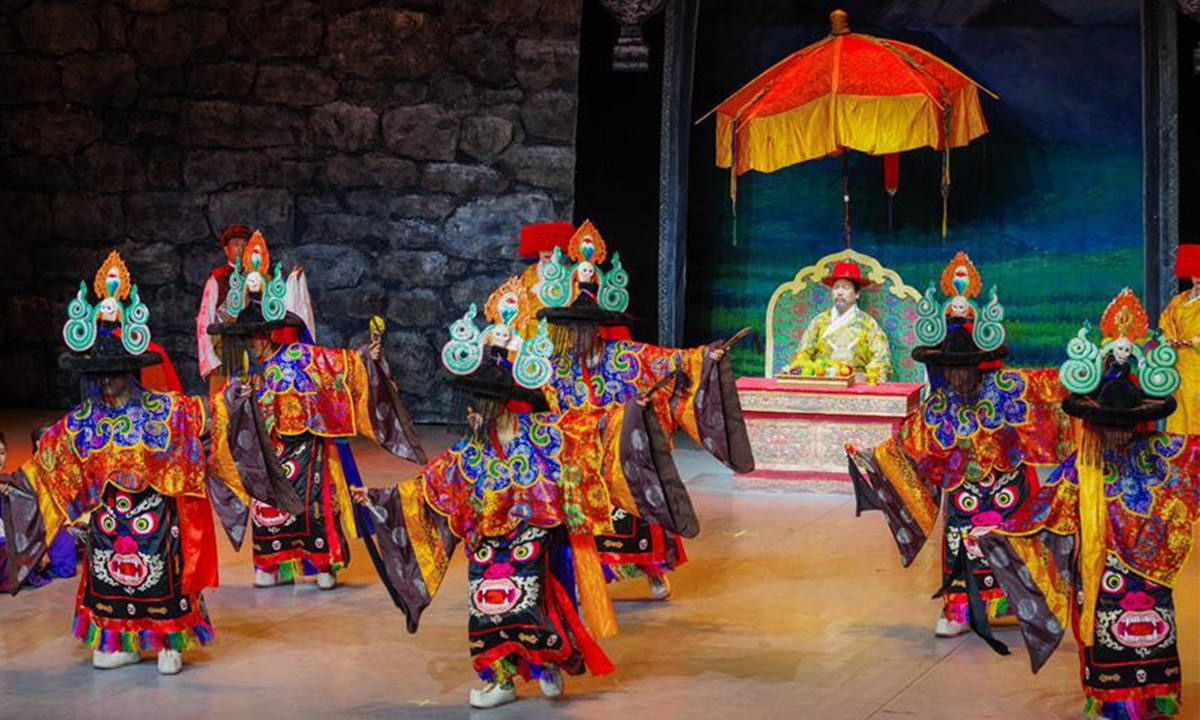China's Tibetan Opera performers keep art form alive through innovation
Source: Global Times Published: 2020/12/3 19:00:27

Members of Tibetan opera troupe perform in a Tibetan opera funded by China National Arts Fund in Lhasa, capital of southwest China's Tibet Autonomous Region, Nov. 24, 2018. Tibetan opera was awarded national intangible cultural heritage status in 2006. (Xinhua/Liu Dongjun)
A total of six traditional Tibetan operas have been adapted to modern operas, as part of a project to digitize eight traditional Tibetan operas, Chinese media reported on Thursday.
Tibetan Opera, or Lhamo, can be traced back to more than 600 years ago, earning it the title of Tibetan culture’s “living fossil.” Literally translated to “sister goddesses,” Lhamo is a comprehensive art form integrating singing and dancing, storytelling and literature from Buddhist teachings and Tibetan history.
It was included in the first batch of Chinese Intangible Cultural Heritage in 2006 and was inscribed on the UNESCO Representative List of the Intangible Cultural Heritage of Humanity in 2009.
In 2013, the local government of the Tibet Autonomous Region launched a project to digitize eight traditional Tibetan operas by adapting them to be more in accordance with the standards and rhythms of modern operas. For instance, the length of these adapted versions are being kept to under two hours. The goal of the preservation work is to leave a basis for future generations to inherit and innovate the art form, according to a report from the Xinhua News Agency.
Currently, the sixth opera Princess Wencheng has been performed at the Tibetan Opera Art Center in Lhasa on Saturday. The director of the opera Yudron said that the original performance is more suitable for an open-air plaza, while this adapted version has been shorten to 2 hours and 30 minutes, and the opera’s characters, lighting, and stage decoration have been improved to be more in line with the characteristics of an indoor stage performance.
According to the director of Tibetan Opera Troupe of Tibet Autonomous Region, the outdoor nature of traditional Tibetan Opera is not conducive to the inheritance and development of the art form,and that the new adaptations will provide audiences with a better viewing experience, and thus be more suitable for its sustainable inheritance.
After the project’s completion, these adapted Tibetan operas will be filmed and distributed to cultural institutions for free so that locals will be able to enjoy the charm of Tibetan Opera, according to the report.
Global Times
Posted in: THEATER,LIFE FOCUS,ARTS FOCUS